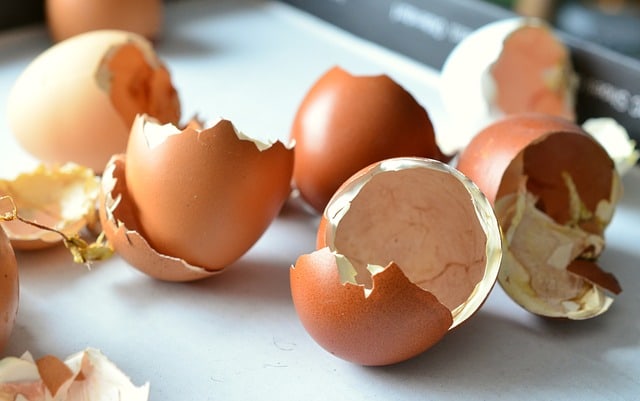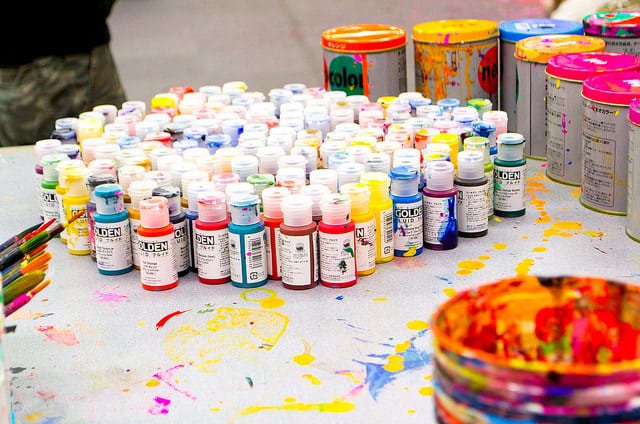In terms of legislation and even in your own home, dumping is a serious offense. Litter on the sidewalk and you are likely to receive a hefty fine. But dumping down your kitchen sink and even your toilet bowl is another matter altogether. For one thing, no-one, not even you, seems to be monitoring it. And research informs us that this form of dumping is now doing a whole lot more damage to the world’s natural environment, particularly its oceans, rivers and lakes. Each year tonnes of waste goes to landfills which degrades the environment and puts our environment at risk. This waste pollutes the air (foul smell), pollutes the water (people throw garbage in rivers or lakes) and pollutes the land (when it rains, the toxic chemicals present in the landfills seep underground).
The rest of this article is a wake-up call for all of us. It also helps to instill in us good, healthy habits which are not only going to help the oceans and the rest of our natural environment, flora and fauna, they’re going to help us too. The random list that follows also offers new hope, especially to those who believe that all is not lost. Because starting in the home, all of these good habits are easy to implement. All you need to do is give it a try. Below listed are 25 things that you should never put down the drain for the sake of healthy environment. We has to narrow this list down too. Ask any plumber in Los Angeles or some other big city and they will likely agree that the list has been cut far too short!
1. Pasta – Semolina content continues to swell once flushed down kitchen sink and will block drains and cause future plumbing problems. Also strive towards purchasing organic alternatives which are free of these coagulating substances.
2. Rice – Swells when dry or cooked grains allowed to run down kitchen drains. As to pasta, the same organic and health philosophies should be applied towards sourcing better alternatives that don’t harm drains when accidentally allowed to filter through.
3. Egg Shells – Shells contribute greatly towards increasing granular waste and is amenable to all other forms of waste by easily collecting on them. It may be asking much at this stage, but did you know that egg shells can also be recycled. Think of its use at Easter time and you already have a clear picture in mind.
4. Coffee Grounds – Plumbers are unanimous in their agreement that coffee grounds are one of the worst offenders for causing drain blockages. So, before rinsing and washing cups/mugs, dispose of grounds in the garbage. Coffee grounds (and egg shells for that matter) are great for composting.
5. Cooking oil – Mixes very easily with all other waste and contributes greatly towards creating drain blockages. Oil can be drained and stored for re-use instead of flushing it down drain. Along with grease and all fats, contributes nearly fifty percent to over thirty thousand sewer overflows across the United States. Don’t forget that salad dressings and mayonnaise are also oils that should not be discarded down drains.
6. Motor oil – Always keep oil, transmission fluids and all other chemicals (including anti-freeze) far away from pipes. This includes household and storm drains. This will help greatly in protecting waterways.
7. Grease – Note that this includes cooked/melted fat from meat, poultry, sausage, bacon, skin as well as gravy.
8. Cooking fat – See Cooking oil. Same practice should be applied.
9. Food fat – See Grease. Also note that this will include dairy products, including cheese, ice-cream, milk and butter. Vegans should note that nut butters are included in this category too.
10. Animal Feces – Not only will they clog drains, these will attract harmful bacteria and vermin. It also should be noted that ‘flushable’ cat litter should not be discarded down drains either and still carry harmful parasites. Do find out from your local vets whether there are suitable disposal units for dumping pet waste in a sustainable and healthy manner.
11. Stickers – Tiny stickers made of plastic and commonly found on fruit and vegetable packs will stick to the sides of drains. If they get that far, they will also collect along walls and the filters of waste water treatment centers. And because they are minute, will still find a way of entering rivers and oceans.
12. Condoms – Not made of latex and will not disintegrate in water. Best to dispose of these at waste management centers because of the harmful content of human fluids. Flushed down toilets, they make their way to oceans and can be mistaken for food by animal life.
13. Sanitary Towels – Replicate example set by restaurants and most public ablution facilities by creating your own sanitary disposal unit at home. Absorbing moisture, they also have tendency to expand. And, of course, it contains human bodily fluids.
14. All Paper Towels – To aid sustainability in the home, replace these with washable cotton cloths. While they may be biodegradable, they still absorb moisture and will clog drainage pipes.
15. Flushable Wipes – Wet wipes, for instance, contain congealed grease and will not disintegrate like toilet paper does. Damaging or harming waste water treatment centers, it also contributes towards increased expenditure of cities’ budgets.
16. Cotton Balls – See Sanitary Towels, Flushable Wipes and All Paper Towels.
17. Cleaning Solutions – Content of these solutions; antibacterial agents, phosphates, other compounds, all harm water’s ecosystems. The switch to natural alternatives devoid of harmful chemicals cannot be emphasized enough here.
18. Paint – No need to dispose of paint solutions’ debris because most municipalities now have hazardous waste facilities in place. Also, paints with eco-friendly solutions, not harmful to water eco-systems and air quality are now widely available.
19. Motor Solutions – See Motor Oil.
20. Medicine – Drop off all unused/expired medicines at local pharmacies which should, by now, have access to chemical/medical waste disposal units. There is also what is known as a take-back program which all users and role players are encouraged to use.
21. Fruit Pits – Disposal blades, if installed, are not sharp enough to grind these. The alternative remains to discard pits in waste disposal units (or compost).
22. Solvents – These, along with cleaning solutions, paint & oil, fall under toxic and harmful chemicals. If disposed of down drains, these will enter lakes, rivers and oceans and harm the vulnerable ecosystems of these areas.
23. Bones – Small bone splinters will never be disposed of effectively when flushed down drain. Always scrape off used plates and dispose into compost heap.
24. Orange and Lemon Rinds – You can recycle these as natural deodorants for the home. Disposing of these will still clog drains.
25. Flour – Always dispose of this in a garbage disposal unit. Flour coagulates and hardens inside of drainage pipes.
This functional and useful list which, undoubtedly is an informative eye-opener for new readers, should never be printed. While paper can be recycled, it still has a nasty habit of finding its way to garbage dumps, perhaps even being inadvertently tossed down a drain. Old habits die hard. But new practices require both vengeance and vigilance to be successful in its implementation. All it takes is to begin with a little more awareness and the job is almost half done. Think in terms of how much costs are implicated whenever your drains and pipes break down. What better way to prevent this by being more aware of what goes down the drain.
This list should prove to be more useful in creating that awareness. And, as mentioned not too long ago, do not print the list. Simply store it away in a folder with a clearly defined label (ideally in upper case letters) and you can always refer back to it whenever you need a refresher or a reminder. Also, go through this list one more time and see just how many items can be eliminated from your home inventory and/or shopping lists entirely. And if it can’t, at least strive towards more environmental awareness by simply reducing its use. Take the use of paint and meat products, and especially plastics, as three clear examples.







